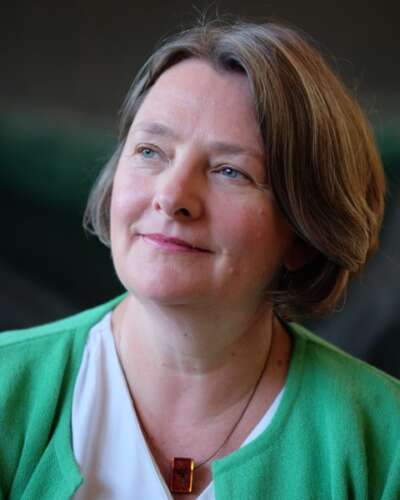The first thing Stephanie Cairns wants people to know is that environmental governance is not exclusively about the government.
“Redesigning economic systems to operate within ecological limits demands new and often challenging forms of deep collaboration across a spectrum of actors – innovators, producers up and down supply chains, consumers, civil society and activists, governments at all levels – as no individual party in these interlocked, complex systems can effect these changes in isolation,” said Cairns, who has worked on environmental, economic and policy initiatives for more than 30 years.
Circular economy the next focus of climate change

Cairns brings that experience to her new role as the Kinross Chair in Environmental Governance, which connects the academic focus of University of Guelph programs with real-world environmental governance initiatives, programs and practice.
Cairns, recently honoured with a Clean 50 Lifetime Achievement Award, has long been interested in both U of G and the City of Guelph because of their commitment to creating a circular economy in which resources are shared and emissions, carbon footprints and waste are eliminated.
“To me, this is the next big conversation after the climate change conversation,” she explained, citing almost 95 per cent of materials in the Canadian economy are used once and thrown away, including everything from fast fashion items to single-use plastics to construction materials.
Prior to the pandemic, Cairns said, there was momentum toward change; COVID-19 has set the movement back and highlighted the fragility of supply chains.
A circular economy is possible, she said, but requires cohesive, systemic change. “A lot of this is about complex innovation.”
Environmental issues require comprehensive solutions
A circular economy also drives discussion about resource efficiency, environmental impact and supply. The idea is gaining prevalence internationally but is slower to take in Canada, which considers itself a resource-rich nation, Cairns said.
“Yet a global transition to a more circular economy will shift the nature of products, services and technologies demanded by global markets, with both implications and opportunities for the Canadian resource sector,” she said.
This is the next major environmental theme that is likely to dominate, she said, calling it “the third pillar of climate change” following energy use and natural solutions.
“The urgency of environmental issues is coming home to people in a way that is really engaging a much wider audience,” she said.
Consumer pressure has been one driver of change, as evidenced by the push around plastics and recycling. Still, Cairns would like to see a comprehensive strategy as opposed to the historical issue-by-issue approach.
“Stop treating environmental issues at the symptom level and go a lot deeper to the fundamental root causes,” she said.
The Kinross Chair in Environmental Governance was established in 2010 and is located within the College of Social and Applied Human Sciences. Chairholders have worked to create and strengthen community partnerships to raise awareness of emerging environmental issues.
The position is funded through an endowment from the Kinross Gold Corp.
Contact:
Stephanie Cairns
scairn02@uoguelph.ca
